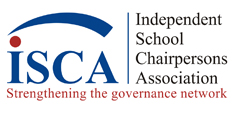December 2019
Member query:
Please describe the board’s role in Head of School succession planning
Reply from Cathy Trower:
Harvard sociologist, David Reisman, once said that a board’s job is to protect an organization’s future from the present. This statement reminds us that the needs of today, without doubt, can be pressing and sometimes urgent, but board members must always take the long-view and ask, “What’s in the best interests of this organization in the longterm?” Board members must guard against gut reactions in the moment that might lead an organization into missteps, misfires, or worse.
There are numerous essential areas for board work, including: hiring, supporting, evaluating (and in some cases, firing) the head; determining vision with the head; ensuring financial viability, program sustainability, and mission relevance; and setting direction, goals, and outcomes measures (and measuring them), to name a few. In short, boards exercise oversight, engage foresight, and provide insight working in tandem as partners in leadership with the head.
In order to ensure the school’s viability and vitality, one of the most important functions of a governing board is Head succession planning. Similarly, every great Head ensures that there is a clear plan in place for emergencies and for planned succession. The board drives the process; the incumbent leader assists. The board and incumbent should be “partners in transition” in succession planning.
An excellent piece from NAIS (https://www.nais.org/magazine/independent-school/fall-2017/succession-planning-welcoming-a-new-head-of-school/) reminds us that succession planning rests on three critical principles:
- Changes in school leadership are inevitable.
- No position is more important to the success of a school than its head, so the right match is critical.
- Identifying, selecting, hiring, and sustaining the school’s next head are perhaps the most important tasks a board may have.
Getting Started
- The Board should have a conversation with the head concerning:
- Talent within the school and how the Board feels about promoting from within vis-à-vis
- conducting an external search (and what circumstances might impact that decision.
- Thoughts about hiring an “acting” or “interim” head and reasons for and against.
- Who (typically officers) would be named to a Succession Task Force responsible for writing, reviewing, and updating succession policies.
The Board should consider writing a “leadership profile” that specifies the most essential skills, competencies, personal qualities, and characteristics needed in a school head.
BoardSource has numerous resources to assist boards with succession planning, including
this article that offers ideas for different types of transitions: https://boardsource.org/wp-content/uploads/2017/01/5-Leadership-Transtion-Types.pdf?hsCtaTracking=f818e77f-a8c0-41ec-bc8c-0edc86bed32b%7Ca59a366d-10c2-4349-8ce9-eb2de098d2a0
Best Practice
It is essential to have a succession policy for permanent vacancy, temporary vacancy, and an emergency (unplanned vacancy).
Ideas for the unplanned (emergency) succession plan
- The Board Chair will implement the emergency plan including:
- Who (what position or specific person in the school) is in charge (the “acting” head) and how that work will be compensated
- Who (what position or specific person in the school) will fill in behind that person so that there is as little disruption as possible
- The role of the Board (or Executive Committee) during this period
- Who will manage communication with key internal and external constituents during this period (that person or office should have a unplanned succession strategy in place)
- The processes that will be followed to search for and name the next head including the Board’s view of hiring an interim
A planned succession policy should answer such questions as:
- What is the role of the Board from start to finish including honoring the outgoing head
- and ensuring a smooth transition to a new head?
- Will a search be launched immediately? This gets to the issue of sentiment around
- hiring an “interim” head.
- Will an internal leader be tapped as “interim” or will an external “interim” be retained?
- What are the essential elements of the interim role?
- When, how, and by whom will the announcement(s) take place around the head’s
- departure?
- What will be the search process and who will be involved?
I hope these thoughts are helpful. What’s most important is that your school should determine head transition policies that make sense for your school’s context and culture.
